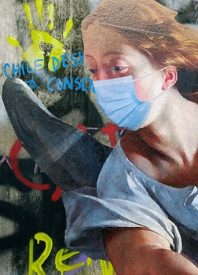
Patricio Guzman’s My Imaginary Country feels like a misnomer because he makes the version of his country feel so real. In other words, he convinces his viewers of Chile’s new version of idealistic utopia, one that far right extremists took from him and the average Chilean almost fifty years ago. The documentary is subjective, yet he doesn’t hide that subjectivity. Chile’s own version of the October revolution has participants who are a cross selection of the population. It transcended both gender and race. And yet, most of his interviewees are women who are either white or white passing Mapuche women. These women faded into the background during the first 200 years of Chilean history, but they are now nurses and first aid workers defending the protesters.
Guzman, thankfully, depicts these women in all classes and various levels of participation during the protests. It’s a shame for me to write that this is my first documentary from him, but this seems like a good place to start into his filmography. There’s something surprisingly fresh about this film despite of him coming back from a self-imposed exile in France. He’s also cognizant of the way this new generation of activists are using spaces that haunt him. This film isn’t just full of female interviewees. His boots are on the ground as he shoots footage of a stadium that Pinochet used as a prison. Now that stadium is a voting booth where Chileans can, with care, determine their present and future political process.
- Release Date: 9/12/2022

